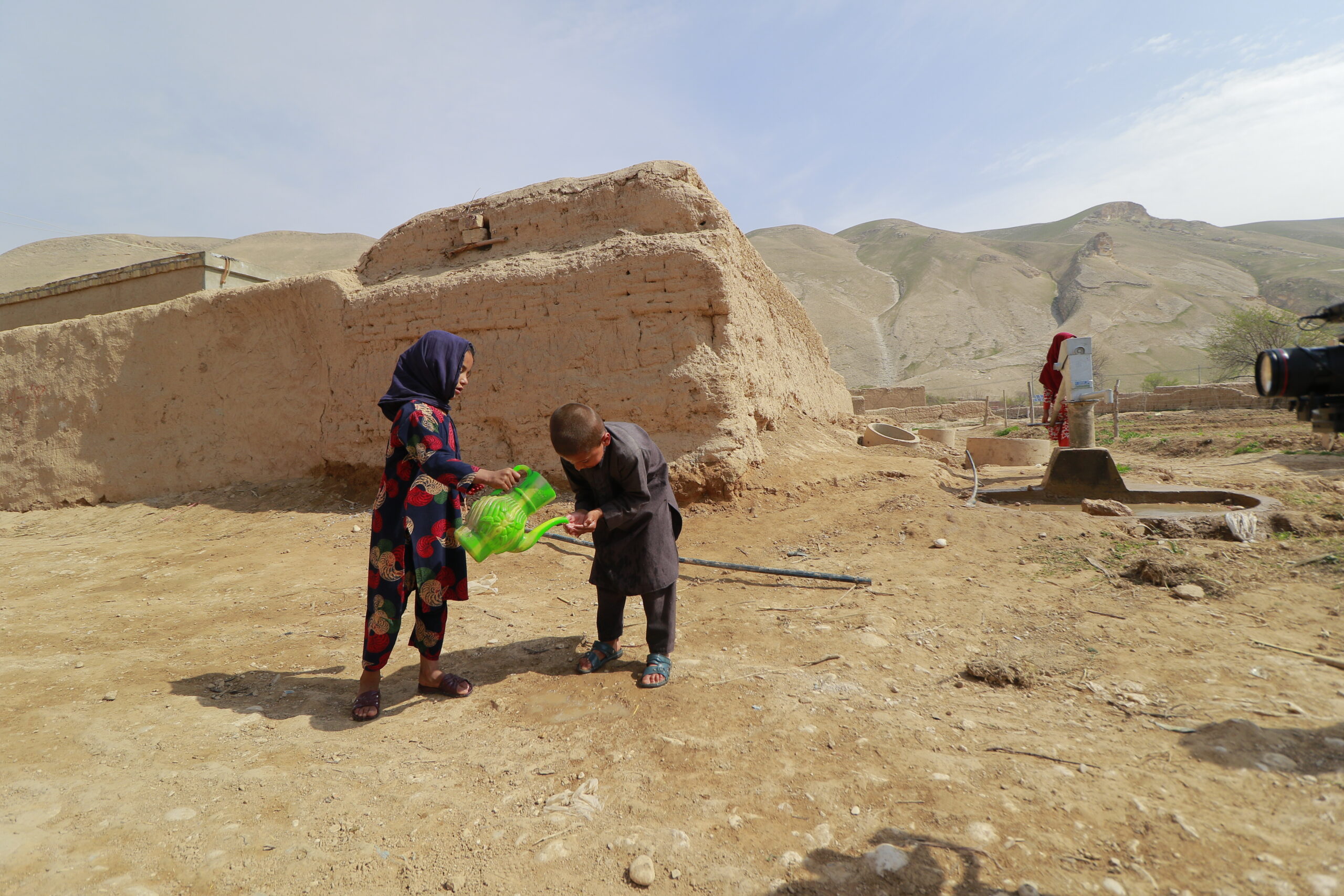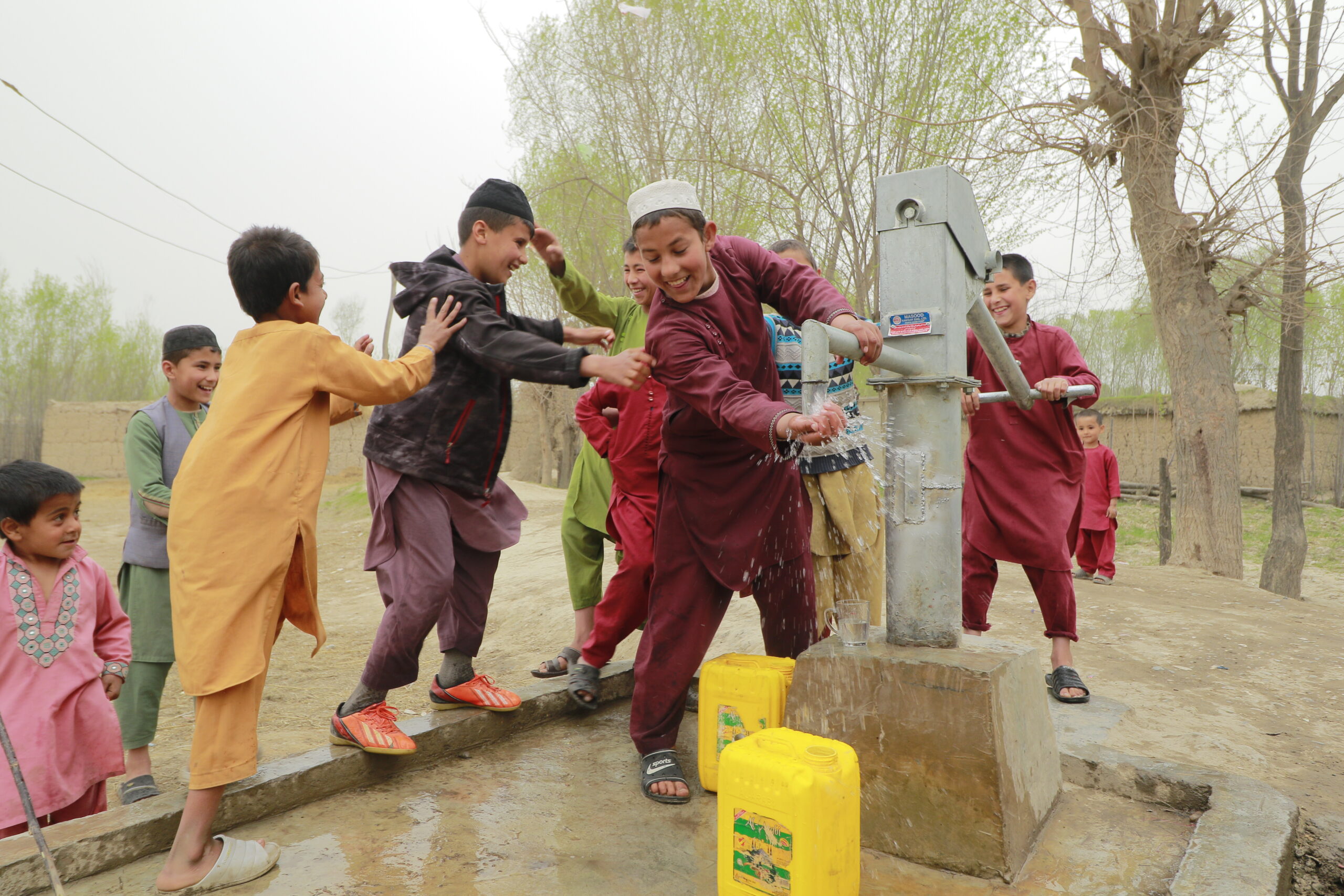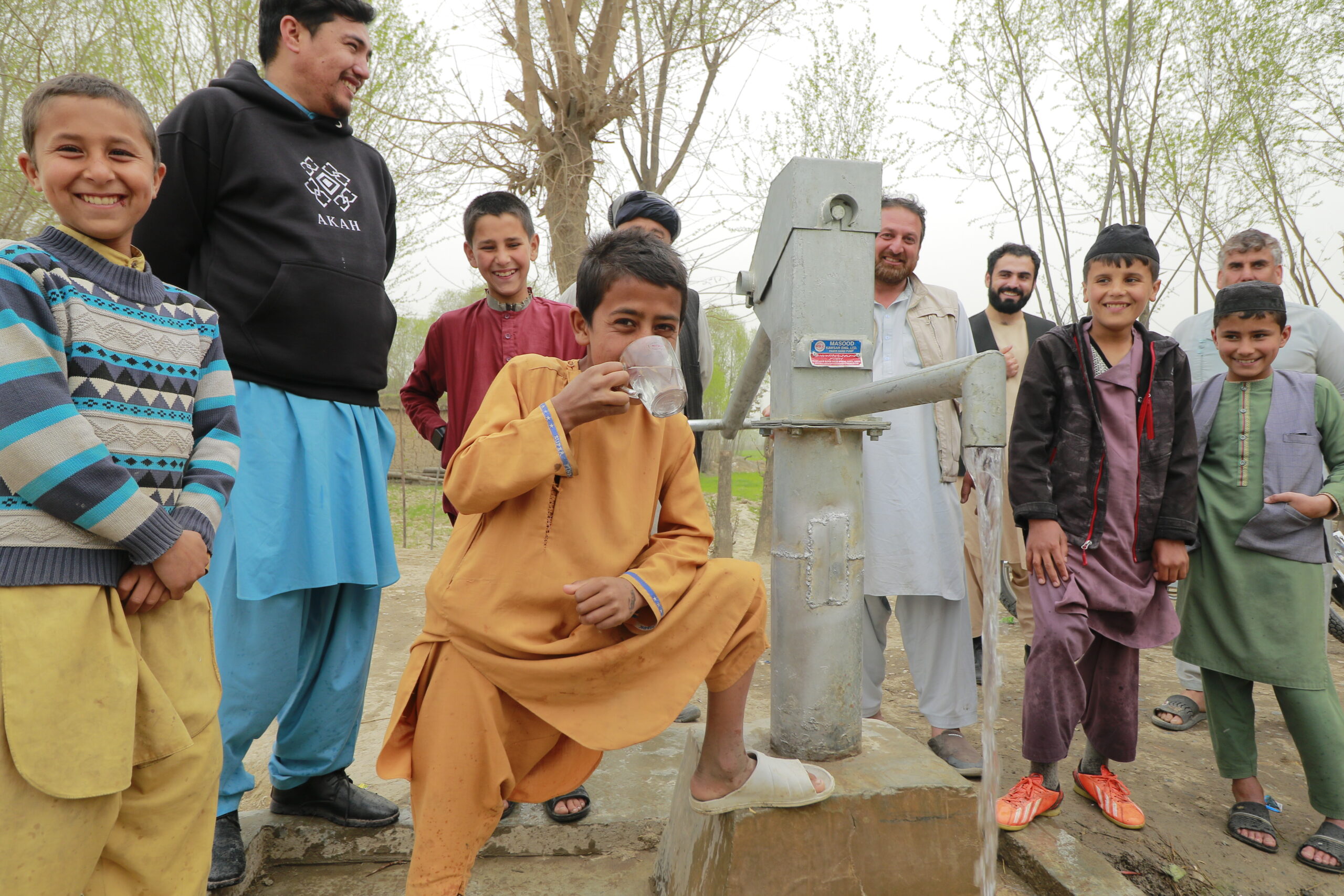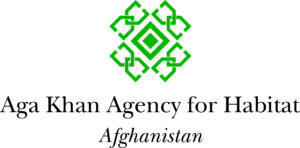Afghanistan is in the midst of the world’s largest humanitarian crisis. According to UNDP, as much as 97% of the population are at risk of sinking below the poverty line.
The situation has been exacerbated by one of the most severe droughts in Afghanistan’s history, which has been ongoing since 2019 and is expected to continue in 2023. This year, it is predicted that 25 provinces will be highly impacted by drought. In extremely remote areas, like the north and central highlands, most communities do not have access to clean, safe drinking water, affecting the health and wellbeing of millions. Women and girls are particularly vulnerable, as they must travel long distances to collect water, taking potentially dangerous journeys far from their homes. A lack of clean water has also resulted in poor sanitation, increasing the spread of illness and diseases.
In response to Afghanistan’s water crisis, over the past year, AKF has been working with the Aga Khan Agency for Habitat (AKAH) to support drought-affected communities in Baghlan, Bamyan, and Samangan provinces, located in northeast and central Afghanistan. The €2.7m programme is funded by European Union (EU) Humanitarian Aid.
To date, the programme has reached more than 94,000 people with emergency assistance and livelihoods support, with a focus on internally displaced persons (IDPs), returnees, women-led households, persons with disabilities, and other marginalised groups. Much of the support has been centered around improving health and hygiene by increasing access to water and sanitation, reaching more than 57,000 people.
To address the acute shortage of safe drinking water, improve health, and protect women and girls, has rehabilitated and built new wells in the most remote villages, as well as constructed solar-powered and gravity-fed water supply pipe schemes through this project. During the project, AKF and AKAH were also able to build and restore toilet facilities within the communities.
Speaking about the new well in Lala Khil village in Bamiyan which 80 families use, Allah Bakhsh Fayaz said, “We had lots of problems previously in terms of drinking water – we travelled some two kilometres to bring water by donkeys, but now we have water near us, we have started a new life. We are very happy.”
“We had lots of problems previously in terms of drinking water – we travelled some two kilometres to bring water by donkeys, but now we have water near us, we have started a new life. We are very happy.”
Allah Bakhsh Fayaz, resident of Lala Khil village
Abdul Raziq is 58 years old and is a resident of Gawsawaran village, Baghlan. “Before, some of our houses had wells inside them which are not safe, they are open and unhealthy. This new water supply is healthy and has no side effects.”
As well as limited Water and Sanitation (WASH) facilities, many of the communities participating in this project do not have access to enough food and are not able to afford their daily expenses. AKF and AKAH have supported more than 5,000 households with Through this support, families most in need have been able to cope with the harsh winter of 2022. The project has also been providing emergency support to more than 16,000 farmers by boosting the health of their livestock through quality feed and improved animal healthcare. Additionally, 6,000 hygiene kits have also been distributed via Community Health Promotion (CHP) committees, which hosted hygiene awareness raising events in their respective communities.
A resident of the Akhtachi village in Baghlan, Shir Mohammad said, “We had a well in the village in the past that had water for some time, but then it was damaged. AKAH and AKF rehabilitated our well and all the people here are using this water now, around 25 households. When the well was not working, people faced lots of problems – residents brought water from a very far distance, which was particularly hard in the wintertime. The WASH training and has also given us wash and sanitation tools.”
Whilst the future of communities in Afghanistan remains uncertain, for the thousands of people supported through this programme, access to clean water is essential to building the resilience needed to weather the worst shocks of the humanitarian crisis. As the ongoing drought continues to take hold, these communities at least have the ability to manage how it affects their lives.



Written by Sayed Eshaq Muqbel

Funded by the European Union. Views and opinions expressed are however those of the author(s) only and do not necessarily reflect those of the European Union. Neither the European Union nor the granting authority can be held responsible for them.





